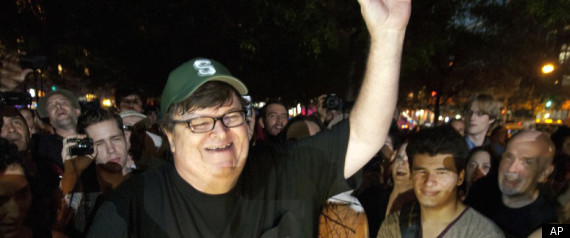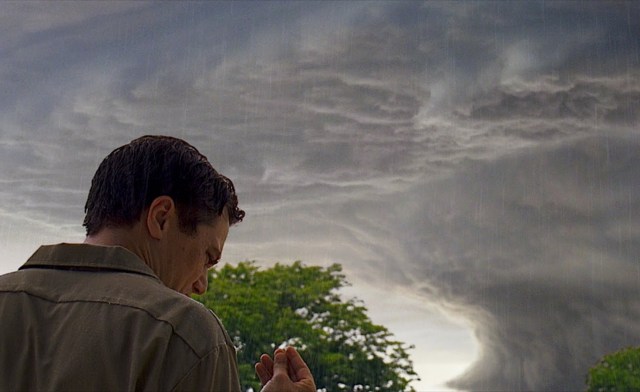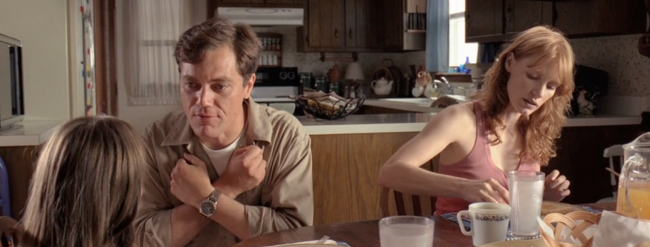Time to use your imaginations: You're all invited to our house for an off-beat Halloween film festival!
As much as I love the usual shockers ("The Exorcist", "Night of the Living Dead"), chillers ("Psycho", "The Shining") and other seasonal favorites at Halloween (from the ancient "Frankenstein" to "The Silence of the Lambs"), this year I have a yearning for the unconventional, the cerebral, those films that burrow into the mind as well as stimulate the scare reflex. Here are 7 of my perennial favorites, some of which are appropriately disturbing in spite of their reputations as being "highbrow".
(Highbrow, that is, with one notable exception.)
So grab your favorite trick-or-treat bon-bons, your favorite liqueur, snuggle into a favorite blanket, turn down the lights, and enjoy the following with me:
Klute (1971) A neglected, effective thriller with one of the essential performances given by any actress on film. Jane Fonda's portrayal of Bree Daniels, a high-class New York call girl in peril, elevates this chilling little gem into the realm of psychological portrait. In the tradition of "Psycho" we learn midway who the killer is, and we wait with dread for Bree's inevitable encounter. Alan Pakula's street-wise direction and a tinkling score enhance a brilliant screenplay. Shocks and suspense are plentiful, but Fonda, in complete command of her effects, delivers a tough, slinky, devastating portrayal you cannot take your eyes away from.
Black Swan (2010) Still the scariest movie I saw last year, ands, incidentally,the most moving. It's one of two horrific films about a young woman's coming-of-age on this list. While the clever re-working of the tragic "Swan Lake" and the detailed observation of the ballet world may satisfy the intelligentsia, it is the series of phantasmagoric images, all metaphors for the attraction and terror of sexual maturity, that hit one with force, and stay in one's memory. Malevolent portraits come to life, Natalie Portman suffers gruesome physical transformations, and Winona Ryder goes off the deep end. Here's a brief clip.
Persona (1966) The granddaddy of existential terror, this masterpiece from Ingmar Bergman demands complete immersion, and viewers who commit themselves to this darkly poetic tale of two women who blend identities are rewarded with a dreamlike procession of alarming images. Bergman manipulates the film medium, draws attention to it, insists that we are always aware that we are watching a film. The pre-credit and credit sequence engage the mind and disturb the receptive viewer with indescribable horror. To those who discover this film today, this opening sequence is still discussed and argued about. You may not believe what you are seeing.
The Elephant Man (1980) perhaps the most accessible film from David Lynch until he directed "The Straight Story", was his forst foray into big-studio filmmaking. It was a triumph of mood and atmosphere. It is not based on the play of the same name, but rather on well-known biographical works about John Merrick, a monstrously deformed man who charmed his way into polite society with the help of a sympathetic doctor. Lynch uses the conventions of black-and-white gothic horror movies to depict the fear and ignorance of a society struggling to adjust to an industrial world. Lynch subverts our expectations of the genre to find a tender tale of redemption amid the horror. The sound design is especially effective.
Eraserhead (1977) For those who prefer their Lynchian horrors more...well, Lynchian, here's the nightmarish, freakish debut that put him on the map. Impossible to describe without making it sound like slapstick comedy, the film moves with the relentless slow logic of a nightmare. "Eraserhead" blends such characters as a nerdy anxious father-to-be, his dysfunctional (understatement) family, a wailing, boil-covered baby with no skin on its body, a dreamy platinum blonde who lives in the radiator and squashes sperm-like creatures with her heel....and a head made into pencil erasers.... If you allow it to, it makes some sort of demented sense. Better yet, have an aperitif first...
Pan's Labyrinth (2006) Another eerie, gruesome tale about a young girl's maturity, this time from Spain. This film is structured like a fairy tale, but it is a very adult fairy tale indeed. Aside from the political horrors and torture, we are witness to the fantastic dreams and visions inside of a womb-like labyrinth, filled with threatening creatures and where blood flows freely. The pale monster with no face, and eyeballs in its palms (see photo at top) is the type of thing that has haunted my nightmares.
Glen or Glenda? (1953) The incomparable Ed Wood, responsible for such "masterpieces" as "Plan Nine From Outer Space", and whose life inspired a terrific movie with Johnny Depp and Oscar-winner Martin Landau, created one of his strangest pieces with "Glen or Glenda", a docu-horror-drama which treated transvestism, a taboo movie subject in the early 1950's. It's a biographic confessional: Ed Wood himself plays the male protagonist struggling with his sexual identity. 1930's horror staple Bela Lugosi appears as some kind of narrator. Lugosi, by then a drug-addicted has-been, plunged into the role with conviciton. This extended clip is a dream sequence, a real jaw-dropper, that might even be too idiotic for Halloween. Anyway, I love it....















































